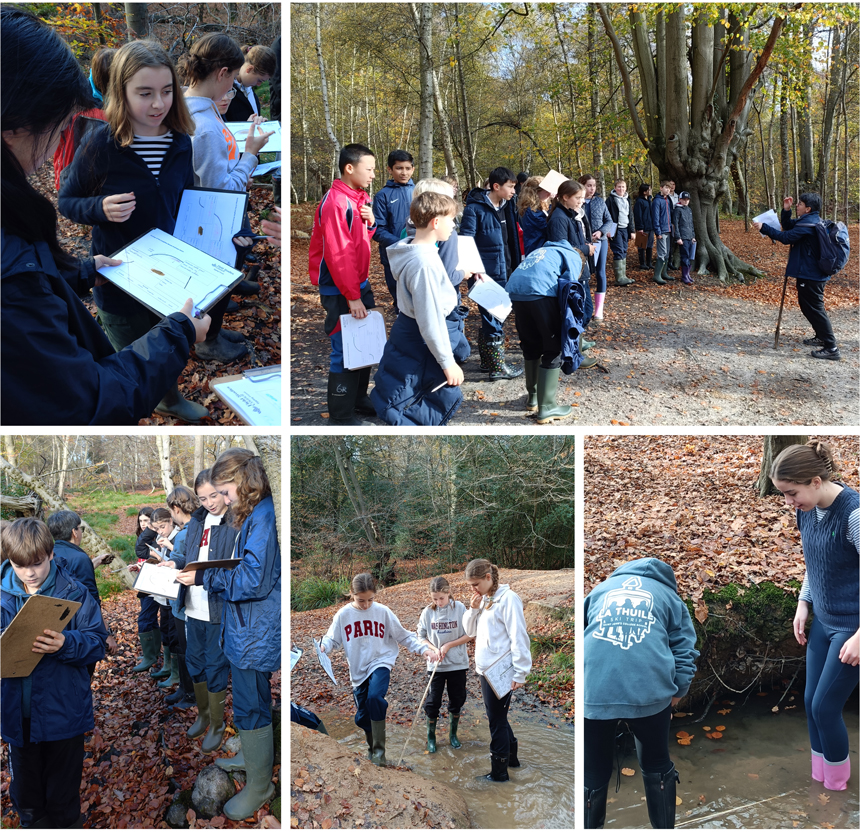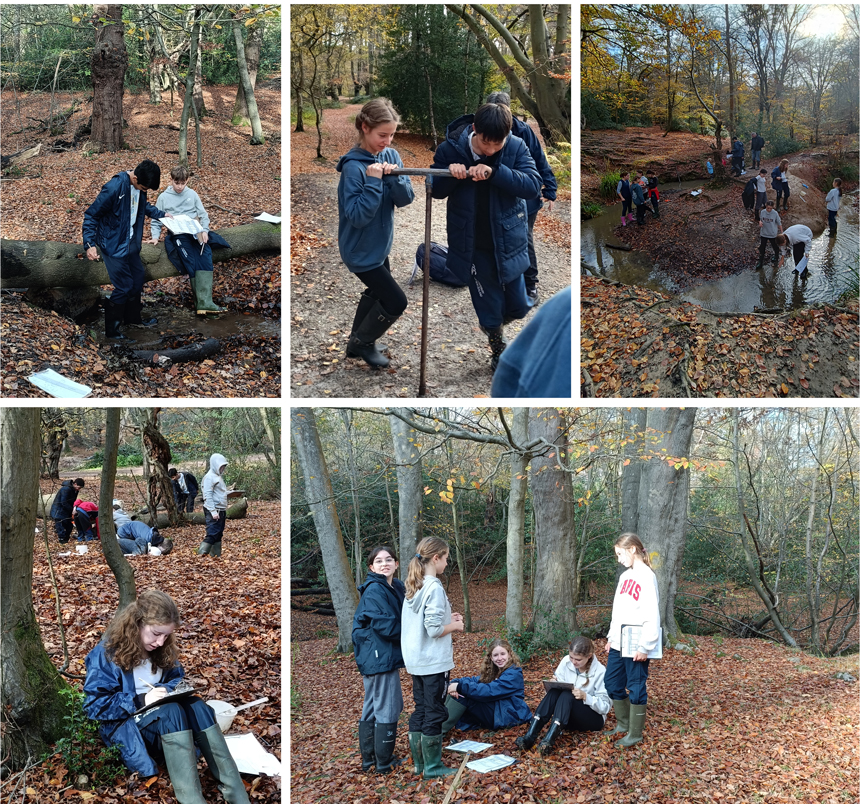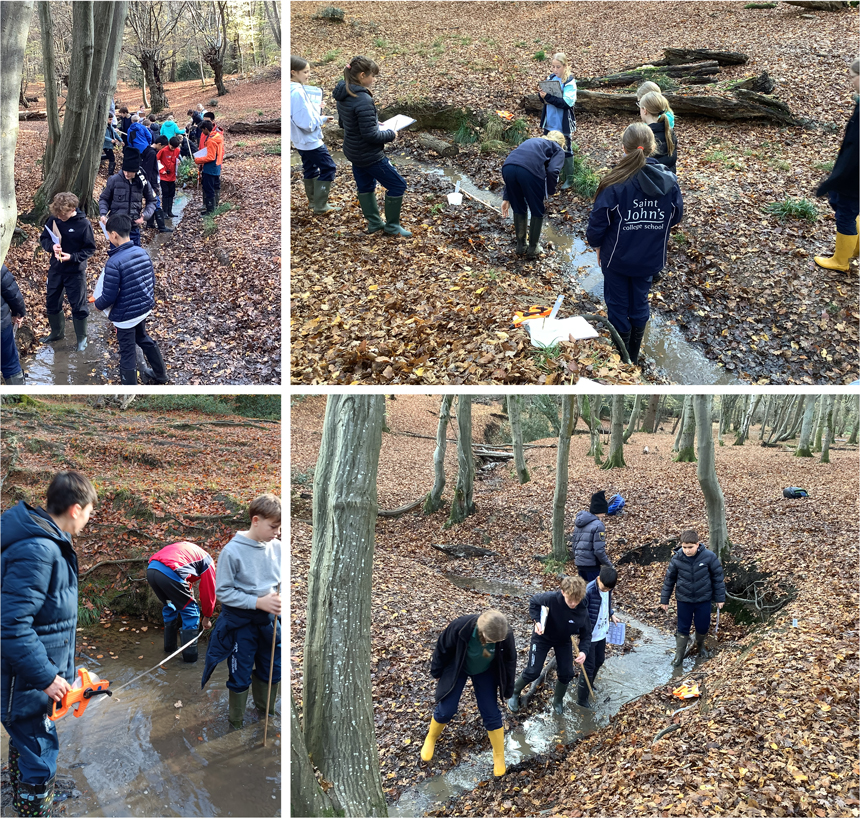Form 6 pupils recently undertook a Geography field trip to Epping Forest, designed to strengthen their understanding of river processes and to develop the investigative skills that will underpin future GCSE studies. The day centred on practical fieldwork techniques, with pupils measuring river width, depth, velocity, and bedload size at different points along the river. These methods allowed them to observe how a river changes downstream and to consider both physical and human influences on fluvial landscapes.

It was so different from just looking at diagrams in class. We actually got to stand in the river and measure it ourselves. It made the Geography feel real.
The pupils were guided by their teachers and Epping Forest leader, who encouraged them to think critically about the results and how human activity might affect natural landscapes. Teachers emphasised the importance of accuracy and critical thinking, encouraging pupils to reflect on how their data could be analysed and presented. This experience provided a foundation for geographical enquiry, a key component of the GCSE curriculum.
Working together as a group made the fieldwork really engaging. We had to be precise with our measurements, and it felt like we were doing real Geography rather than just reading about it.

Beyond the technical skills, the trip also highlighted the value of teamwork and resilience in fieldwork. Pupils worked collaboratively to ensure reliable results, learning how geographers must balance practical challenges with academic rigour. The visit concluded with pupils reflecting on how their findings connect to classroom theory, reinforcing the idea that Geography is best understood through a combination of study and experience.

Fieldwork is central to Geography. By engaging in real investigations now, our Form 6 are not only deepening their knowledge but also preparing for the demands of GCSE coursework and examinations.